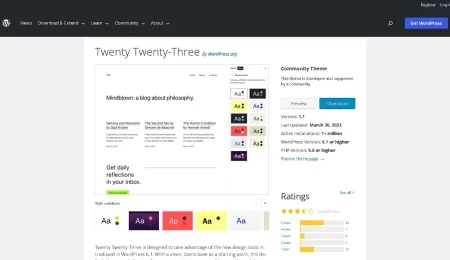WP Mail SMTP: A Guide to Improving Email Deliverability
WP Mail SMTP: In today’s digital age, email remains a cornerstone of communication for businesses and individuals alike. However, ensuring that your emails reach their intended recipients can be challenging due to various factors that affect email deliverability. One effective solution to enhance email delivery rates is using the WP Mail SMTP plugin, which streamlines the email sending process from your WordPress site. This comprehensive guide will walk you through the essentials of WP Mail SMTP and how it can significantly improve your email deliverability.
Understanding Email Deliverability
What is email deliverability?
Email deliverability refers to the ability of an email to successfully land in the recipient’s inbox without being filtered out as spam or bouncing back. It depends on several factors, including sender reputation, email authentication, and content quality.
Factors affecting email deliverability
Key factors influencing email deliverability include sender reputation, email authentication protocols like SPF, DKIM, and DMARC, as well as the content and design of your emails. These elements collectively determine whether your emails reach the inbox or get flagged as spam.
Introducing WP Mail SMTP
Overview of WP Mail SMTP plugin
WP Mail SMTP is a WordPress plugin designed to improve email deliverability by fixing the inherent issues with WordPress mail function. It ensures that your emails are sent using a trusted SMTP server rather than the default WordPress method.
Benefits of using WP Mail SMTP
- Enhanced Deliverability: By bypassing the PHP mail function, WP Mail SMTP improves the chances of your emails reaching recipients’ inboxes.
- Email Logging: Detailed logs help you track email activity and diagnose delivery issues.
- Integration: Works seamlessly with major email services like Gmail, Yahoo, and Microsoft SMTP.
Setting Up WP Mail SMTP
Step-by-step installation guide
- Install WP Mail SMTP from the WordPress plugin repository.
- Activate the plugin and navigate to the settings page.
- Configure the sender’s name and email address.
Configuration options in WP Mail SMTP
- SMTP Settings: Input SMTP server details provided by your email service provider.
- Other Settings: Choose between different email services, set up email retries, and configure error notifications.
Configuring SMTP Settings
Importance of correct SMTP settings
Correct SMTP settings are crucial for reliable email delivery. They ensure that emails are sent securely and authenticated, reducing the likelihood of them being marked as spam.
How to configure SMTP in WP Mail SMTP
- Enter SMTP host and port information.
- Enable encryption (SSL/TLS).
- Authenticate with your email provider using your login credentials.
Improving Email Authentication
Understanding SPF, DKIM, and DMARC
- SPF (Sender Policy Framework): Verifies that an email message is sent from an authorized server.
- DKIM (DomainKeys Identified Mail): Adds a digital signature to emails to verify the sender’s identity.
- DMARC (Domain-based Message Authentication, Reporting & Conformance): Specifies how ISPs should handle emails that fail SPF and DKIM checks.
Configuring authentication in WP Mail SMTP
WP Mail SMTP simplifies the setup of SPF, DKIM, and DMARC records, ensuring that your emails are authenticated and less likely to be marked as spam.
Troubleshooting Email Delivery Issues
Common email delivery problems
Issues such as emails not being delivered, landing in spam folders, or bouncing back can occur due to various reasons, including incorrect settings or poor email practices.
Using WP Mail SMTP for troubleshooting
- Email Logs: Access detailed logs to track email delivery status.
- Debugging Tools: Use built-in tools to diagnose and fix common email delivery issues.
Testing and Debugging
How to test email deliverability
Send test emails to different email accounts and check delivery status and spam scores using tools like Mail Tester or GlockApps.
Debugging tips with WP Mail SMTP
- Error Notifications: Configure WP Mail SMTP to notify you of failed email deliveries.
- Diagnostic Logs: Analyze logs to identify and resolve email delivery problems promptly.
Optimizing Email Content and Design
Best practices for email content
Craft engaging, relevant, and personalized content that encourages recipients to open and interact with your emails.
Design tips to avoid spam filters
- Avoid Spam Trigger Words: Use clear, concise language.
- Responsive Design: Ensure emails display correctly on all devices.
- Call-to-Action (CTA): Include a compelling CTA that encourages action without being overly promotional.
Monitoring Email Deliverability
Tools for monitoring deliverability
Utilize tools like Google Postmaster Tools or third-party services to monitor email delivery metrics, bounce rates, and spam complaints.
Using WP Mail SMTP logs effectively
Review WP Mail SMTP logs regularly to monitor email delivery performance and identify any issues that may affect deliverability.
Security and Privacy Considerations
Ensuring email security
Secure sensitive information by encrypting emails and adhering to best practices for data protection.
GDPR compliance with WP Mail SMTP
Ensure compliance with data protection regulations by configuring WP Mail SMTP to handle personal data securely and transparently.
In the realm of digital communication, ensuring your emails reach their intended recipients’ inboxes is paramount. Email deliverability hinges on factors like sender reputation, proper authentication (SPF, DKIM, DMARC), and thoughtful email content and design. WP Mail SMTP emerges as a crucial tool for WordPress users, enhancing deliverability by bypassing WordPress’s default mail function and utilizing trusted SMTP servers. This guide covers everything from installation and configuration to troubleshooting common issues, offering insights on optimizing email content, monitoring deliverability metrics, and ensuring GDPR compliance. By implementing WP Mail SMTP and following best practices outlined here, you can significantly improve your email deliverability, fostering better engagement and communication with your audience.




Leave a Comment